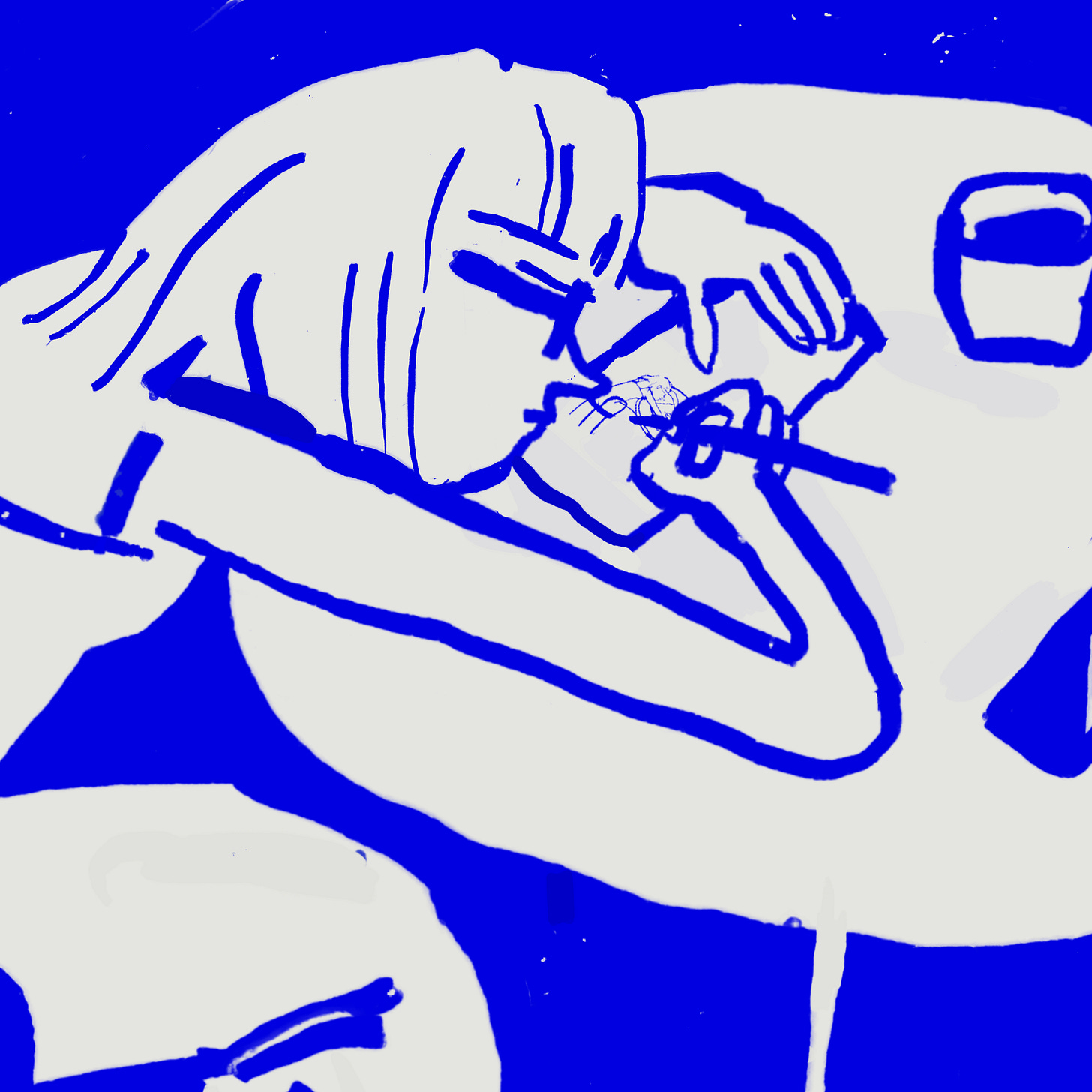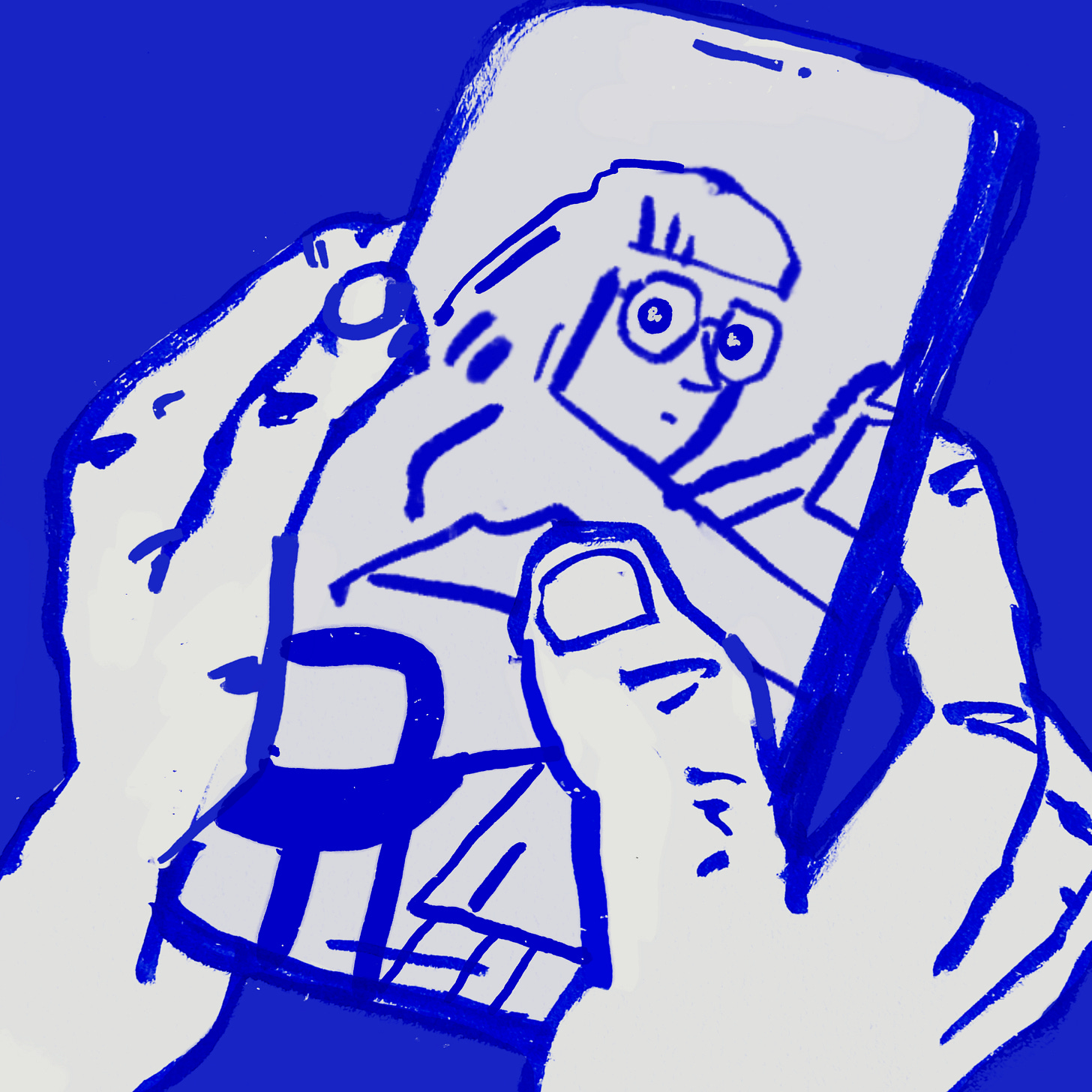Some years ago I spent a month alone in a house in the forest. Other than an occasional phone call and visits to the supermarket I didn’t spend much time with people. It was pretty lonely, but there was another feeling I remember much better: the feeling of not looking like anything.
It wasn’t that I’d stopped caring about brushing my hair or putting on clean clothes. I didn’t hide any mirrors either. It was just the fact there was no one there to perceive me as “another”. I didn’t look like anything because to look like something, someone has to be looking. And there was no one looking. Not even myself.
It felt great.
My sister made a comic strip the other day that made me think about this feeling. Her piece is about self-identification and performance online. Before scrolling any further, I recommend you read it.
In short, she calls out how everyday, mundane tasks have become a part of building an identity online. Things like “wearing an outfit, buying groceries, doing a sport or rearranging your room” is acted out in a carefully managed way as a self-validating performance for an audience, imaginary or real.
My sister is 11 years younger than me. She grew up on the internet. Her generation is the one who really knows the gaze – the awareness and perception of oneself as the one who views and the one who is viewed.
But maybe it’s true that this performative way of being is seeping into all corners of modern life, across generations. Every lived moment now entails the possibility of becoming a defining moment; not defining for you, but defining of you.
Maybe some of you will find it hard to relate to this. Maybe you just don’t do social media, or maybe you consider yourself merely as an observer. But then think about this: Those who live in this world I’ve described, probably will, or already have, considered you as an object of their online self-identification. Are you a quirky grandpa? A mother that can dance? A good looking dog? You’re a potential asset for someone else’s identity branding.
In the heydays of Instagram we witnessed how the physical world started to shape itself to smash it on camera. I’m talking about grammable café interiors, mediocre artworks becoming crowd-pullers thanks to the phone lens and fashion brands making cartoonish aesthetics a dominating factor of their design to ensure online attention. The big red boots, rainbow cloud bread, Bali swings and the Museum of Ice cream are all examples of this mash-up of reality and hyper-reality, catering to a carefully curated social media profile.
This is not what my sister’s comic strip is about. These previous examples are ostentatious, staged performances. Show offs. They say LOOK AT ME. LOOK AT ME DOING ALL THESE FLASH THINGS. Among coolkids like my sister, this is pretentious and millennial. But don’t cheer too soon, it doesn’t mean that anyone is getting a single millimetre away from the gaze. Instead of simply surfacing when one waltzes into a spunky café or makes a good looking sandwich, the gaze now hovers over every single moment, every single day. Things like “wearing an outfit, buying groceries, doing a sport or rearranging your room” has a potential. It’s the perfect anti-performance performance. It’s a PLEASE LOOK AT ME disguised as a OH I’M SO ALOOF I DON’T REALLY CARE IF YOU LOOK AT ME OR NOT.
“We have forgotten that we are not characters in a movie. Enjoying things does not have to be a personality trait. Living isn’t a performance.” Didda writes.
Living isn’t a performance. Even if parts of social life are to some degree and have always been performative, it shouldn’t be so at all times. We all need moments of not being looked at, of not “looking like anything”.
But is it really possible?
The narrator in the comic strip appears to be talking to her followers. But in the last frame we see that this was never the case. She’s performing for herself, by herself, in front of the mirror.
As we are slowly engulfed in hyperreality, the gaze surrounds us. Internal, external, conscious, unconscious. Hidden in browser trackers, the algorithm, your social media timeline. The other people filming themselves, or you. The online camera in the gym. The recorded zoom meeting. The bathroom mirror. It doesn’t matter. The gaze is there and there is no forest to hide in. There is no “looking like nothing”.












Wow. This is so interesting. I’m going to ponder this for a while.
My first thought went to making autobio comics and why I got SO incredibly tired of it after a while. I think it was that lens of ‘this has potential’. As if the audience is always sitting on your shoulder, it gets heavy!